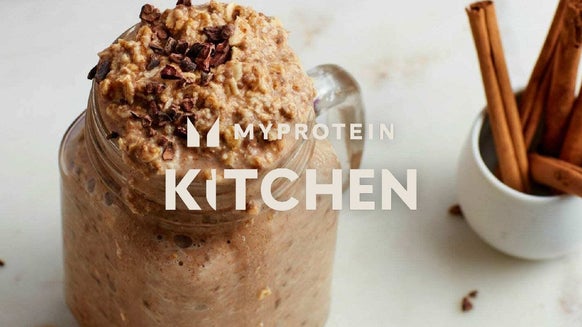What Is L-Ornithine? | Benefits, Side Effects & Dosage

You already know the many benefits that amino acids have on your capacity for lifting weights, right? If you don’t, then finding out that they’re the building blocks to those much sought after gains is the most important news you’re going to get all day.
While this supplement is common among fitness veterans, L-ornithine is one amino acid you might not be familiar with. But it is of the best for raking in those gains.
In this article, we will discuss the benefits of L-ornithine, how much you should be taking, and how it can help your body rid itself of any waste.
What is L-Ornithine?
L-ornithine is an amino acid that is mainly used in your urea cycle in the capacity of removing excess nitrogen from your body. L-ornithine is important for the removal of your bodily wastes. Ammonia (NH3) is a waste product that results from cellular metabolism. When levels of ammonia become too high this can be detrimental for your health as it can become toxic. L-ornithine works as a catalyst that turns ammonia into urea, which is then in turn removed from your body in urine.
L-ornithine is created in your body, in other words it is not an essential amino acid that you solely need from external sources. It is found in its highest concentrations in your connective tissue, for example, in your skin.
So how can you and your exercise regimen benefit from L-ornithine? As well as its waste management capabilities, this handy amino acid is also known to boost your energy levels along with several other perks, which we will get to shortly.
Where Does L-Ornithine Come From?
Animal protein is the best dietary source of L-ornithine, like other amino acids. Your liver cells produce L-ornithine from the amino acid arginine, which you take into your body and ingest from a variety of dietary sources. Top food sources L-ornithine include dairy, meat, fish, eggs and dairy products along with coconuts, grains including oats and wheat and carob. Further to this, some great sources of arginine for vegetarians include peanuts, soybeans, egg whites and sesame seeds. Alongside dietary sources, L-ornithine supplementation is often recommended to ensure you receive the benefits of this amino acid.

Benefits of Taking L-Ornithine
Managing the body’s waste
Amino acids are often referred to as building blocks, the bricks built up to make proteins in your muscles and organs. They also turn into biochemical compounds like hormones and neurotransmitters. As we touched on before, when these compounds are broken down, ammonia is produced from the nitrogen that they contain, which in turn becomes toxic when allowed to build up.
As an integral catalyst in the processes of your urea cycle, or ornithine cycle, it helps your liver cells to convert the threat of ammonia into urea, which then is processed by your kidneys and removed as urine. L-ornithine accelerates the conversion of ammonia into urea for ultimate excretion through urine. An L-ornithine deficit, or your body’s inability to produce enough, can result in too much toxic waste, which can have a serious impact on your health. For this reason if you are not getting enough from your diet, L-ornithine supplementation is recommended.
Optimise your strength and endurance capabilities
So this is probably what you came here for, to learn how supplementing this amino acid can help to improve your workout performance. You may not realise but the aforementioned waste management of nitric oxide has a great impact on your training. Nitric oxide dilates your blood vessels when your hard working body wants to pump extra blood to your tissues.
Bodybuilders, we know that you know all about creatine. Your muscle tissue stores creatine as phosphocreatine. Phosphocreatine synthesizes during high-intensity exercise, such as lifting weights, to provide your muscles with extra energy. Creatine pulls water into your muscle cells, increasing protein synthesis. Creatine can be utilised by your body as a quick form of energy during high intensity, short-burst activities such as lifting a heavy weight or breaking into a sprint. The big news is that arginine stimulates your body’s natural production of creatine. By supplementing L-ornithine you therefore add to the production of arginine, and therefore helps with your strength and endurance when you need it in a gruelling training session.
L-ornithine can also help to counter natural fatigue through its ability to keep your energy levels balanced while helping you to get a better night’s sleep.
Dosage of L-Ornithine
We recommend that L Ornithine supplementation (as hydrochloride), or L Ornithine HCL, is added to liquid or as part of a blend at 1.5g per serving to be used 1-3 times daily.
Another version, L Ornithine Alpha Ketoglutarate (OAKG), which is a salt formed of two molecules of the non-protein amino acid, L-ornithine, and dicarboxylic acid, alpha-ketoglutarate, may be taken in daily doses of 3mg.
What Are The Side Effects of L-Ornithine?
There is not enough research on the side effects of L-ornithine to give a clear insight to any potential side effects, but instances of gastric discomfort, restlessness, and diarrhoea have been reported above dosages of 10mg. Pregnant women and children are advised to avoid supplementation.

Take Home Message
L-ornithine is an amino acid that is naturally produced in your body that has great benefits for your strength and endurance when training, as well as playing an important role in the management of waste and the build of toxic ammonia in your body. Presently, there are few studies to advise on the side effects of supplementation, but other benefits include helping you to sleep and managing the effects of fatigue.
FAQ
What is L-ornithine?
L-ornithine is an amino acid produced by the body, responsible for removing excess nitrogen from the body.
Where does L-ornithine come from?
Animal protein is the best source of L-Ornithine, however it can also be found in dairy, eggs, coconuts and grains.
What are the benefits of taking L-ornithine?
Benefits of taking L-ornithine include managing the body's waste products and balancing energy levels.
What dosage of L-ornithine should I take?
We recommend you take 1-3 servings of 1.5g of L-ornithine supplements.
What are the side effects of L-ornithine?
There are no notable side effects of L-ornithine supplementaion, however there have been some reports of gastric discomfort, restlessness and diarrhoea associated with taking large quantities of the supplement.

Victoria has a master’s degree in English Literature. She loves doing unconventional workouts like pole fit, which she’s done for the past four years. She’s also a passionate foodie, so in her spare time, you’ll find her trying out the newest restaurants in her home town.








